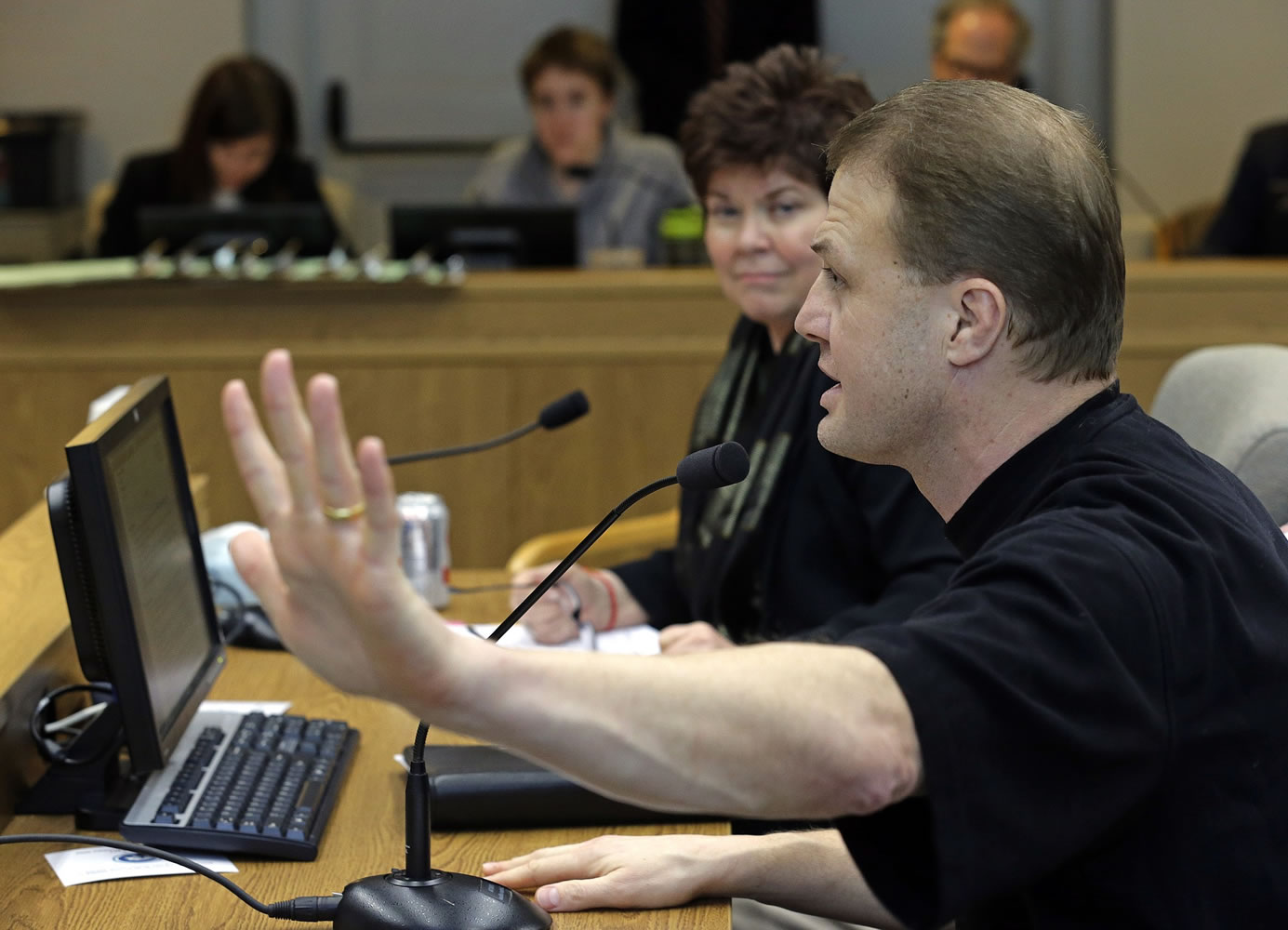OLYMPIA — Voters’ ballots would note the potential financial impact of initiatives under a measure debated on Monday before a Senate committee.
The bill, sponsored by Republican Sen. Joe Fain, seeks to include the fiscal impact of the measure on the actual ballot if it costs or reduces spending by more than $25 million over two years. The wording on the ballot would tell voters that “other state spending may need to be reduced or taxes increased to implement the proposal.”
“This is a sensible step forward, really designed not to change the way in which the initiative process operates, but more importantly to provide necessary information to the voters, right there on the ballot before they make their choice,” Fain told the committee.
Fain said that that ballot notification proposed by Senate Bill 5715 was an evenhanded tool “giving voters a very brief explanation that there consequences for those decisions.”
Initiative promoter Tim Eyman has slammed the bill, and a similar one since abandoned, in numerous emails sent to his supporters and media. On Monday, he reiterated some of his concerns to the panel.
Eyman said that the fiscal impact statement inserts bias into the ballot title and was “an unwarranted attack on the initiative process.”
“I don’t think it’s necessary to have a surgeon general’s warning label on initiatives in order to be able to scare people away from voting for initiatives,” he said. “I think it insults their intelligence.”
The bill follows the passage of Initiative 1351 in November — a measure that would decrease class sizes and is projected to cost about $2 billion through the middle of 2017.
Sen. Pam Roach, R-Auburn, asked the panel to refer the bill to the committee that she is chairwoman of because she is considering other initiative-related bills there. She also noted that voters sent lawmakers a message with their passage of Initiative 1351.
“We have to give some credit to the voters,” Roach said. “We did not do our job in addressing class size, and we got it handed to us. If we’d been working on that, we wouldn’t have had this initiative.”
Another measure introduced — but since abandoned — by Fain would have prevented supporters from gathering signatures for initiatives whose costs fall outside the state’s four-year balanced-budget requirement unless the measures specify which taxes will be raised or which programs will be cut. In 2012, lawmakers passed legislation requiring the state to approve a budget that was expected to remain balanced over a four-year period, instead of just two years.
Fain said that he decided to focus on the ballot-title bill after hearing feedback from his colleagues.
Sen. Andy Hill, a Republican from Redmond who is chairman of the committee, said he supports the premise of the bill. Hill, who had signed on in support of Fain’s original constitutional amendment bill, said he thinks the ballot-title one is more feasible.
“We want the voters to have the opportunity to make the most well-informed decision possible,” he said before the hearing.
In addition to writing a two-year state budget, lawmakers this session are tasked with addressing education funding in the state after the state Supreme Court found the state in contempt last September for lawmakers’ lack progress on that issue.
Under state law, voter-approved initiatives cannot be changed or suspended within two years of passage unless lawmakers approve it by a two-thirds vote in both chambers. After two years, they just need a simple majority vote for such changes.
Lawmakers have not hesitated to take such action on initiatives — including measures on teacher raises and class sizes — during tough budget years.
Frank Ordway with the League of Education Voters responded to Eyman’s statement of potential bias during the hearing.
“Our view is that this process would inject fact into the process,” he told the committee. “If you’re going to offer up an initiative for a pony for all, we should know how much each one of those ponies actually costs.”



